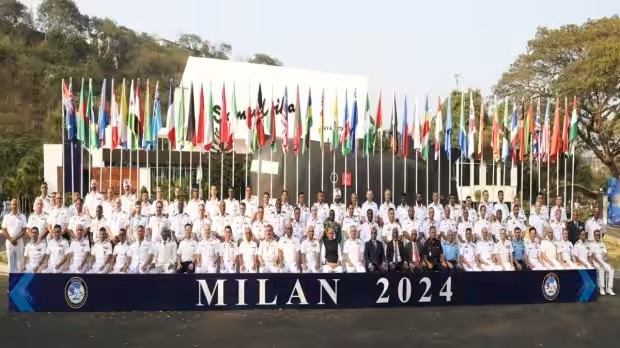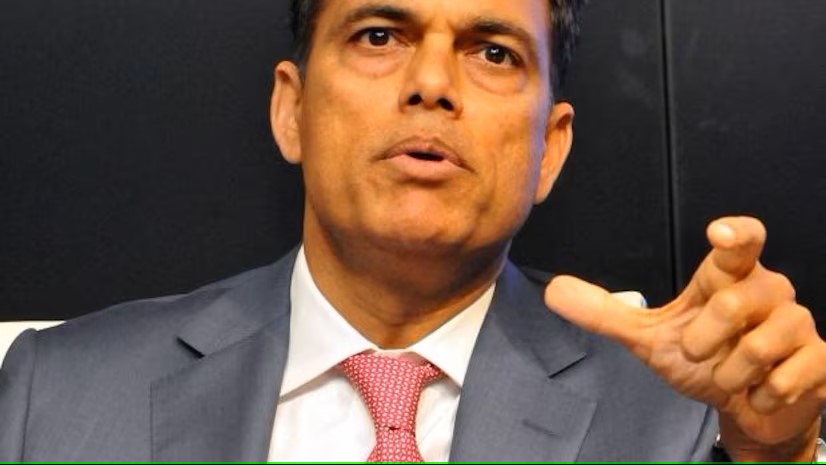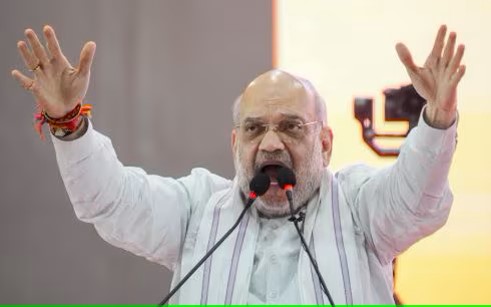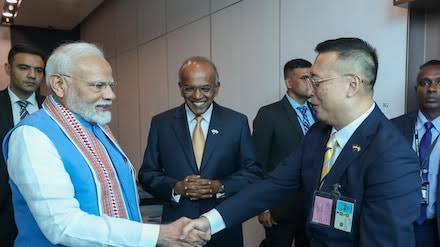The rhythmic thrumming of waves against the Visakhapatnam coast provided a fitting backdrop as Raksha Mantri Shri Rajnath Singh addressed the 50 nations gathered for the 12th edition of MILAN, the largest and most complex iteration of this multinational naval exercise yet. His words resonated far beyond the shores of India, echoing a call for a paradigm shift in global collaboration towards a shared vision of peace and prosperity.
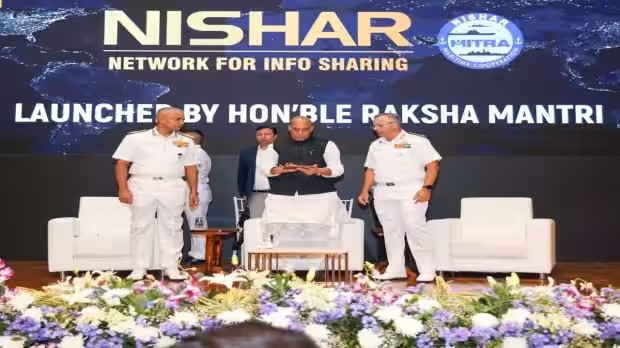 Shri Rajnath Singh challenged the traditional definition of peace, urging the international community to embrace a “positive peace” rooted in fairness, justice, and collective action. This vision extends beyond the mere absence of conflict, encompassing a shared prosperity that transcends individual borders and demands concerted efforts from all nations.
Shri Rajnath Singh challenged the traditional definition of peace, urging the international community to embrace a “positive peace” rooted in fairness, justice, and collective action. This vision extends beyond the mere absence of conflict, encompassing a shared prosperity that transcends individual borders and demands concerted efforts from all nations.
While acknowledging the traditional roles of armed forces in conflict prevention and deterrence, the Raksha Mantri highlighted their evolving responsibility to foster international cooperation and interoperability. Exercises like MILAN serve as crucial platforms for nations to train and operate together, building the regional synergy necessary to achieve the shared objective of peace and prosperity.
Reaffirming India’s proactive engagement in the Indian Ocean Region, Shri Rajnath Singh pledged to be the “First Responder and Preferred Security Partner” for regional stability. His words resonated in the wake of recent maritime challenges like piracy and hijacking attempts, underlining India’s commitment to ensuring safe passage for all. This commitment extends beyond immediate borders, encompassing the wider Indo-Pacific region, where India strives to be a pillar of peace and stability.
Stepping beyond the realm of military prowess, the Raksha Mantri invoked India’s role as “Vishwa Mitra,” the Friend of the World. He emphasized the crucial role of forging meaningful partnerships in creating a connected and equitable global environment. This vision transcends geographical boundaries, highlighting India’s commitment to fostering collaboration and understanding as cornerstones of a peaceful future.
MILAN 2024 transcends the confines of mere military drills. It serves as a vibrant tapestry woven from insightful discussions, joint operational manoeuvres, and cutting-edge technology demonstrations. These activities push collective boundaries, refine skillsets, and showcase the combined expertise of participating nations. They are not just military exercises; they are testaments to the collective strength and shared commitment towards a secure maritime future.
Recognizing the vital role of communication in fostering unity, Shri Rajnath Singh unveiled the NISHAR communication terminal, a crucial tool for enhanced interoperability among partner navies. This initiative underscores the understanding that collaboration extends beyond shared military prowess, encompassing seamless communication and cultural exchange. MILAN Village serves as a vibrant example of this, with its diverse cuisines, music, and art fostering connections that transcend military cooperation.
The Maritime Technical Exposition (MTEX-24) stands as a testament to India’s strides towards self-reliance in the defence sector. This platform brings together industry giants, innovative startups, and defence PSUs, fostering collaboration and knowledge exchange. It serves not only to drive technological advancements within India but also to strengthen relations with friendly navies through knowledge sharing and joint ventures.
MILAN 2024 is more than just an exercise; it is a symbol of India’s leadership in promoting international cooperation and building a secure and prosperous future for all. By collaborating on shared challenges, fostering mutual understanding, and embracing technological advancements, participating nations can create a maritime environment that benefits not just individual nations but the entire world. As the rhythmic waves of the Bay of Bengal continue their symphony, they carry with them the echoes of a collective commitment to a shared future – a future where collaboration, not conflict, paves the way for peace and prosperity for all.

